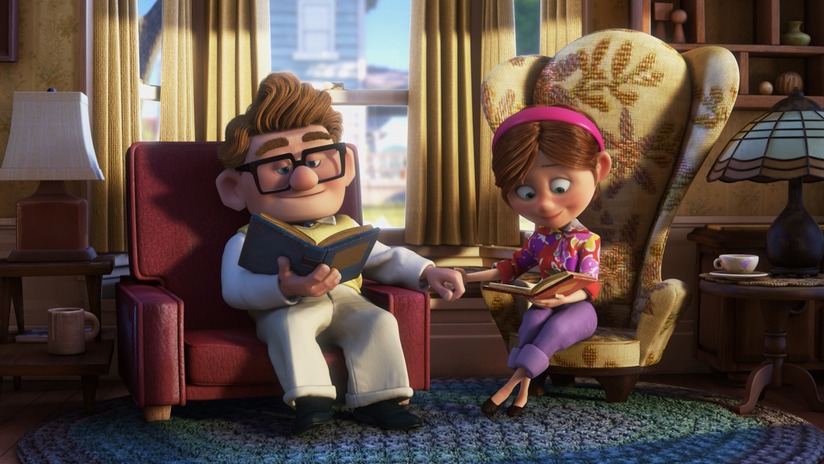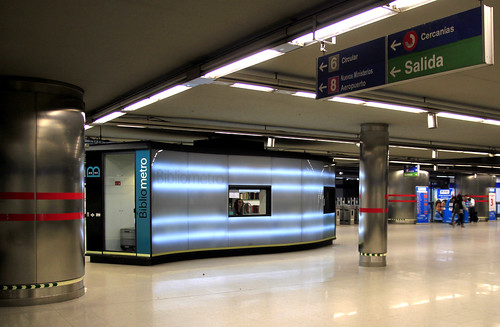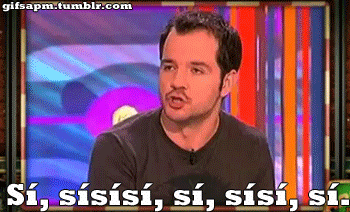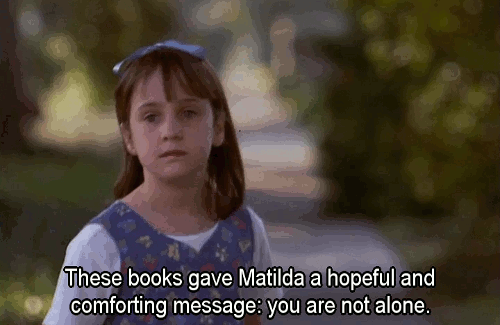 |
| Pictured: Carl and Ellie being an awesome couple. |
One of the reasons Madrid is one of my favorite cities ever (besides the fact that I haven't really traveled that much and that I met my husband there) is that it is a city of readers. At least, it used to be. I remember taking the metro to university and seeing all these people reading during their commute. Mind you, during rush hour that is a feat of contortionism and determination.
 |
| Pictured: I'm pretty sure this is the one in Nuevos Ministerios. I think. |
They also have Bibliobus, which is a library bus. A library bus, you guys! How can you not love a city with so much access to free reading materials for its residents?
Now, I'm sure there are other cities/communities that have comparable services. The DMV area, though, is not one of them. Thankfully, we have pretty fantastic county library systems here, so I can't complain too much. They have an uphill battle since this is certainly not a society of active readers. (Or is it?)
Which brings me to what got me thinking about writing this post in the first place. Spanish Television (RTVE, by its initials in Spanish), has a program called Página Dos. It's a half hour show all about books. They just started their 9th season with their 300th episode. In the episode, they interviewed a few famous Spanish authors. In one segment, they talk to authors about whether or not they can live exclusively from their writing. Julia Navarro, the author of La Biblia de Barro (The Bible of Clay), among other bestsellers, said that she thinks it's a miracle she now live off her writing since Spain doesn't have as many readers as it should.
What?!?!
Does she mean, like, the country as a whole? Doesn't most of the population in the country live in the big metro areas? So, like, they have access, right? Right???
During this last trip, I did notice that there are less people with hard copies of books. But! There are several things I attributed this to:
- I did not go on metro during rush hour at all.
- I did see quite a few people using e-readers.
- Of those on their phones that I spied on, about half were reading a book.
Maybe the moral is that everyone, everywhere, should read more?







